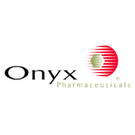Articles tagged with: Velcade
NewsFlash »
Coverage Of Velcade For Myeloma Is Expanded In Scotland – The Scottish Medicines Consortium (SMC) has approved the use of Velcade (bortezomib) for multiple myeloma patients who have relapsed after at least one prior therapy and who have previously undergone or are unable to receive a bone marrow transplant. Previously, Scottish patients were required to fail at least two treatments before being eligible to receive Velcade. Under the deal, Velcade’s manufacturer, Janssen-Cilag, has agreed to cover the cost of Velcade for any patients who do not respond to the treatment. It was announced in March that the National Health Service in Scotland would begin considering such cost sharing deals (related Beacon news). For more information, please visit the SMC Web site.
Kansas City Area Regional Community Workshop – On November 21, the International Myeloma Foundation (IMF) will hold a workshop in Overland Park, KS. The guest speaker, Delva Deauna-Limayo, M.D., a myeloma specialist at the Nevada Cancer Institute in Las Vegas will talk about multiple myeloma, treatment options at diagnosis and relapse, why participation in clinical trials is important, and management of side effects. The program will begin at 8:30 a.m. and end at 3:30 p.m. For more information or to register, please visit the IMF Web site.
For a more detailed listing of myeloma related events, please check the Myeloma Beacon Events Calendar.
News»

A combination regimen of Velcade (bortezomib), Doxil (pegylated liposomal doxorubicin), and dexamethasone (Decadron), known as the VDD regimen, is highly effective for initial treatment of multiple myeloma, according to a recent article published in the Journal of Clinical Oncology.
Velcade, which is also approved for treatment as a single agent, suppresses tumor growth by inhibiting the enzymes that break down important proteins in cancerous cells. The second component of the VDD regimen, Doxil, blocks the process of DNA replication in cancerous cells, thus preventing them from multiplying. Finally, dexamethasone …
News»

Retreatment with Velcade (bortezomib) alone or in combination is an effective treatment for patients with relapsed multiple myeloma, according to a recent article published in the American Journal of Hematology.
Velcade, which was first approved in 2003, has previously been evaluated as a single-agent treatment in Phase 2 and 3 trials in patients with relapsed and/or refractory myeloma. It is currently the only single agent with a demonstrated survival benefit in patients with relapsed myeloma.
The prospective clinical trial published in the journal enrolled 32 patients with relapsed myeloma who had …
News»

In a recent phase 2 clinical trial published in the journal Leukemia and Lymphoma, ten out of 23 participants with recurring multiple myeloma or other plasma cell cancers reached partial or complete remission on a steroid-free treatment regimen of Velcade (bortezomib), Doxil (doxorubicin liposomal), and thalidomide (Thalomid). The scientists at the State University of New York who performed the trial were looking for a treatment for people who cannot tolerate steroids.
Steroid-based drugs such as dexamethasone (Decadron) are common and effective multiple myeloma treatments but can have serious …
News»

The International Myeloma Working Group (IMWG) recommends that multiple myeloma patients should have their stem cells collected within four cycles of therapy with Revlimid (lenalidomide), thalidomide (Thalomid), or Velcade (bortezomib). Otherwise, these drugs may interfere with stem cell collection. The recommendations were published in the journal Blood in August.
During an autologous stem cell transplant, physicians collect a patient’s stem cells in the early stages of the patient's anti-myeloma drug regimen, and return these same cells to the individual after the regimen is complete. Transplantation is a common treatment usually given to …
News»

On Monday, Onyx Pharmaceuticals agreed to purchase Proteolix, the developer of the cancer drug carfilzomib (Kyprolis), for $276 million. Carfilzomib, which is Proteolix’s leading cancer drug, has demonstrated significant tumor-reduction activity in Phase 1 trials of patients with relapsed multiple myeloma.
Similar to Velcade (bortezomib), carfilzomib is a proteasome inhibitor that blocks the activity of these protein-destroying enzymes and induces cancer cell death. Carfilzomib is currently undergoing Phase 2 trials on patients with relapsed multiple myeloma, for which data will be reported in late 2010. Phase 3 trials combining carfilzomib with
News»

Preliminary results from an ongoing Phase 1 clinical trial indicate that carfilzomib (Kyprolis), a new proteasome inhibitor, has significant therapeutic results in patients with relapsed myeloma. The Multiple Myeloma Research Consortium (MMRC) reported the results at the Joint ECCO 15-34th ESMO Multidisciplinary Congress, which was held in Berlin from September 20 to 24.
Carfilzomib selectively induces cell death in cancer cells by blocking the activity of proteasomes, which are enzymes that break down proteins. Carfilzomib is similar to Velcade (bortezomib), the first proteasome inhibitor approved for multiple myeloma treatment. However, carfilzomib …
